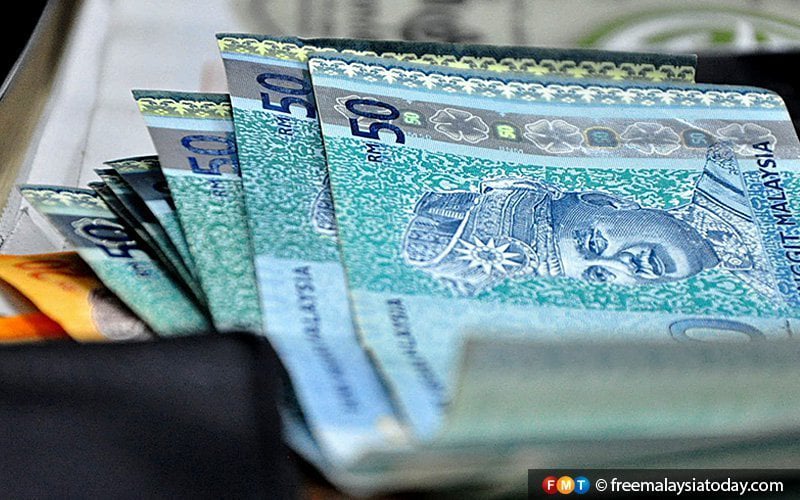
PETALING JAYA: The right long-term policies are more pragmatic than short-term intervention to help the ringgit recover from its worst performance in years.
That is the view shared by economists when responding to economy minister Rafizi Ramli’s statement that the government does not plan to step in to stem the decline of the local currency.
On Tuesday, Rafizi pointed out that Malaysia did not have the level of reserves to match that of other countries “and we have to accept that”.
As such, he said, the government recognised the fact that it had to spend its money wisely.
The ringgit closed at 4.6430/4.6470 against the US dollar yesterday, further extending its poor performance over several weeks already.
The ringgit was pegged at RM3.80 to the US dollar at the height of the Asian financial crisis in 1997 and 1998.
When the peg was lifted in July 2005, it strengthened a little, and over the next decade, it traded in the RM3.27 and RM3.77 range.
Then its decline began, trading at RM3.90 to the greenback in 2015 and about RM4.14 the following year. It has been trading at about RM4.60 or more against the US dollar for weeks now.
Center for Market Education CEO Carmelo Ferlito said Rafizi would be right to not want to intervene to stem the ringgit’s decline if it meant using the currency reserves.
“The main domestic factor playing against the ringgit is not the lack of action but a lack of vision,” he told FMT Business.
The ringgit is the second worst performing currency this year, ahead of only the Japanese yen. It has declined 4.5% against the greenback since the start of the year, compared with a 5.9% retreat by the yen.
Ferlito said the government should focus on building economic capacity and infrastructure but, unfortunately, it has not been able to articulate its economic vision yet.
He said announcements of liberalisation and pro-business policies together with restrictive measures such as price controls and subsidies sent mixed signals.
“This lack of consistency gives the impression that Malaysia is navigating at sight, while neighbouring countries are very actively promoting business friendly reforms,” he added.
You can’t have it all
Benedict Weerasena, research director at the think tank Bait Al-Amanah, said economies are always presented with the “Impossible Trinity”, a belief that a country cannot simultaneously maintain free capital movement, a fixed currency exchange rate, and an independent monetary policy.
Policymakers have to choose which two out of these three goals they want to prioritise, he told FMT Business.
He said Malaysia has chosen to maintain an open capital account and preserve its independence to set its own monetary policy.
“Hence, our currency exchange rate is flexible,” he said. However, if Malaysia chooses to peg the ringgit, it will not be able to set its own monetary policy.
That, he said, would entail raising the interest rate from 3% currently to match the federal funds rate of 5% to 5.25%. “This will result in far worse repercussions,” he said.
Implication of currency interventions
Sunway University professor of economics Yeah Kim Leng said central banks that have attempted currency interventions have usually ended up with depleted foreign reserves.
He told FMT Business that the current circumstances were not so dire that a peg is needed.
He said the step was taken in 1998 because of speculative currency attacks, collapse of banks, flight of foreign capital, a sharp drop in the stock market and property price corrections.
“None of these woes are at the extreme end to warrant a ringgit peg (now),” he added.
A short-term issue
Yeah pointed out that currencies were prone to over-shooting but would eventually self correct.
“Raising income and productivity growth, improving economic and financial resilience and overall competitiveness are the best antidote to bouts of currency weaknesses as the currency will eventually adjust to its underlying fundamentals over the longer term,” he added.
Shankaran Nambiar of the Malaysian Institute of Economic Research said Rafizi was being realistic.
“He sees this as a short-term phenomenon and he doesn’t want to introduce short-term measures that will have disastrous effects,” he told FMT Business.
“That precisely is what will happen if we bring in capital controls. It took years to undo the damage caused by the capital controls in 1998,” he added.
Nambiar said Rafizi was looking at long-term measures.
“He thinks addressing structural issues will bring back confidence. Of course it will take time to see results,” he added. - FMT


No comments:
Post a Comment
Note: Only a member of this blog may post a comment.